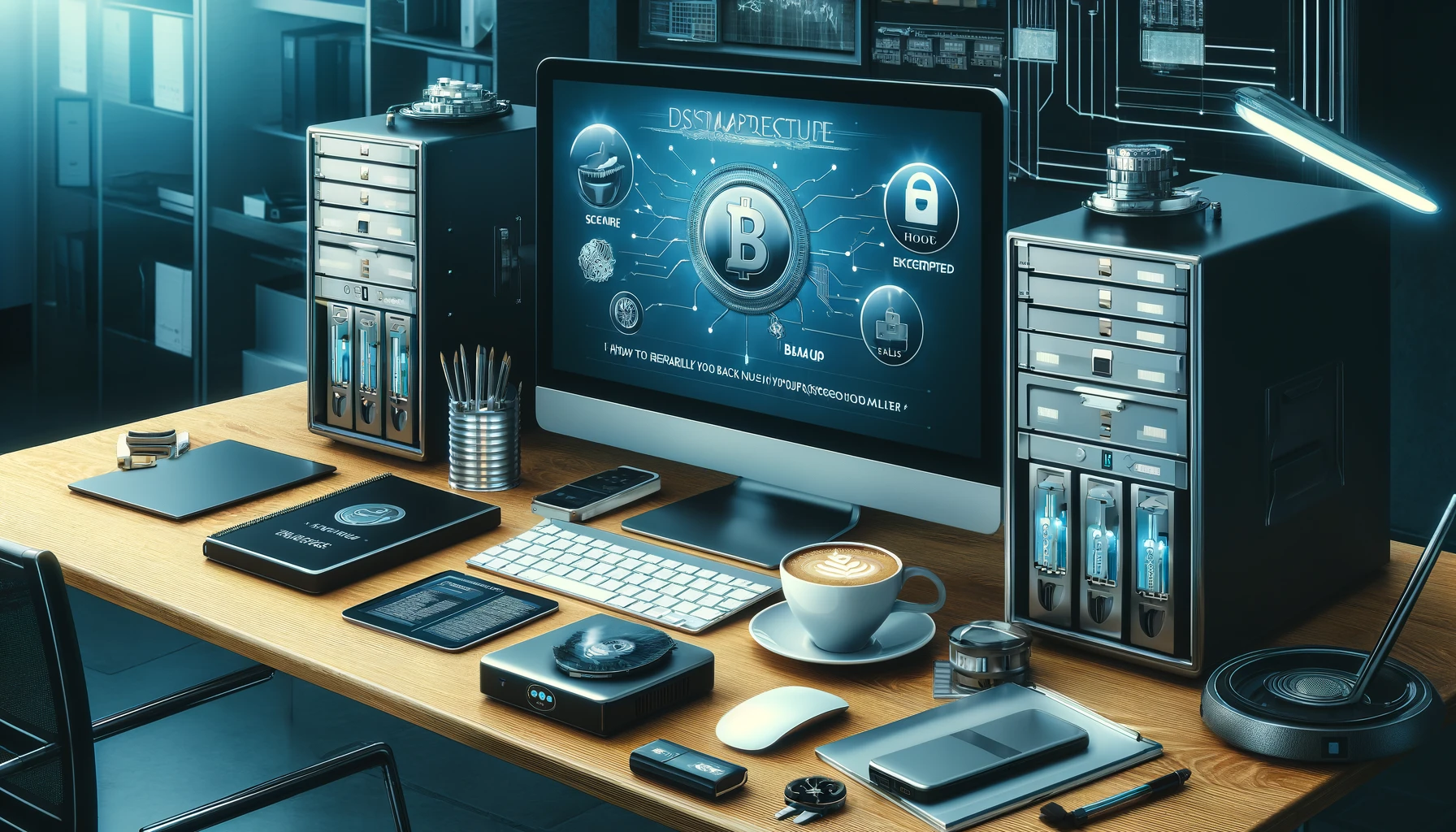Introduction
One of your top priorities for any type of investment you make is the security of your resources. This applies strongly to an asset like cryptocurrency, whose base technologies are still relatively new. The digital nature of cryptocurrency also makes it susceptible to various forms of cyberattack, and a crypto trader who isn’t privy to these may find it painfully easy to lose their hard-earned coins.
To this end, traders rely on a variety of crypto wallets to store the private keys of their transactions. But while it may seem obvious enough, even to new crypto traders, that their wallet must remain secure, many still end up using less effective methods to secure them and thus compromise the safety of their wallets still.
The following pointers should help you properly back up your crypto wallet and keep your coins safe:
1) Choose Whether You Want an Online or Offline Backup
Your crypto wallet holds your access to your crypto coins, and you certainly wouldn’t want to be locked out of your own investments. The best way to ensure that that won’t happen is to create a reliable backup for your wallet. But before that, you’ll need to decide whether you want to get an online or offline solution for the job.
Both offline and online backup solutions have their own pros and cons. Online backups may include encrypted cloud storage services, meaning that they can be easily accessed at any location so long as you’re connected to the internet. However, online wallets (also called “hot” wallets) are more susceptible to hacker attacks, who may be able to exploit any weak security measures on the user’s or solution’s part and gain unauthorized access to the coins.
Meanwhile, offline backup solutions are often as simple as writing or printing out your public and private keys on a piece of paper. There are also physical devices you can buy to store your backup information. While offline backup methods can make your keys safer against possible cyberattacks, if your hardware backup is destroyed, then you might as well have lost your private keys for good.
You should be able to choose which backup method suits you best so that you’re able to maximize its use, and to see what backup features can be best utilized by your wallet solution. If you’re trading a cryptocurrency like Monero (XMR), for example, your Monero wallet solution may give you the option to restore your wallet using mnemonic or seed phrases as well as your keys. You’ll just want to make sure these are accessible to you and safely stored away in multiple safe locations.
2) Use Seed Phrases
Speaking of seed phrases, what exactly are they? Think of it like this: when you want to remember a password but don’t wish to make it obvious to other people, you often choose to write a clue that can remind you of the actual password. This is how seed phrases essentially function—a select choice of words chosen from a pool of thousands whose order can then represent your keys.
Again, if this feature is already available in your current wallet, don’t hesitate to utilize it. As for storing them, you can simply write down these phrases or store them somewhere safe online.
Seed phrases are well-suited for individuals who don’t want to go through the trouble of setting up digital or physical backups. But while they’re good to have, it might be better to use them in tandem with other security measures like the rest of the ones mentioned in this article.
3) Encrypt Your Backups
You may think that your wallet’s safe because you’ve just made a backup for it, but how safe is the backup itself? If your backup is vulnerable, then your wallet is still not secure. Hence, be sure to encrypt your backups with strong passwords.
Avoid using passwords that may be easy to guess, such as birthdays or names of family members. This is especially true for online backups, since there are password cracking tools out there that may get through if your passwords aren’t strong enough.
4) Be Careful about Where You Store Your Keys and Backups
This tip is most relevant to those who choose the offline or hardware backup route. If you intend to write down your seed phrases on paper, then make sure that that sheet is stored somewhere fireproof and waterproof. Likewise, if you’re using a physical device for your backup, make sure it’s in a secure location away from where it can be easily damaged or stolen.
You may also consider making multiple copies of your backups to be stored in different places, just in case disaster strikes and one of your backups does get destroyed.
5) Be Discreet and Vigilant
Many passwords and other pieces of confidential information used to facilitate cyberattacks are often fished out of people through social engineering. The same can be done to your backups if you’re not careful. Commit to being discreet when it comes to your private keys, passwords, and even seed phrases. In the same way that you wouldn’t give anyone your bank account password, make sure your backup passwords are known to you only.
Be wary as well of scams such as fake login accounts or phishing attempts. Stay on top of the latest scamming tactics by reading about cryptocurrency news so that you know which tactics in particular you should watch out for.
When it comes to securing and backing up your crypto wallet, make sure you don’t cut corners. Your efforts to secure and back up your keys will guarantee that you have access to your coins even if you end up forgetting your password. At the same time, you should have full peace of mind knowing that you won’t lose access to your investments. The pointers in this article should serve as useful reminders to back up your crypto wallet today and to keep your coins secure at all times.
